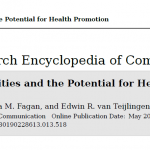A one-day Workshop on 20 July 2016, hosted by the Centre for Conflict, Rule of Law and Society at Bournemouth University and exploring recent developments in prenatal screening and the resulting challenges for public health, the law and ethics.
Aims of the Workshop:
The UK already operates a fairly comprehensive prenatal screening programme. The discovery of cell-free fetal DNA in maternal blood has made it possible to undertake additional, accurate and reliable tests that present minimal risk to mother and the developing fetus. The UK RAPID evaluation study1 has recently reported on the contingent use of non-invasive prenatal testing (NIPT) for Down’s syndrome and the UK National Screening Committee (UKNSC) will shortly have to make a decision about the public provision of these tests within the NHS.
This event will draw upon contributions from speakers from a wide range of disciplines and will explore a variety of medical, social, ethical and legal perspectives. The aim of the day will be to identify benefits, challenges and possible outcomes for this new technology.
We are pleased to announce that the workshop will be chaired by Professor Roger Brownsword of Kings College London & Bournemouth University. Contributors will include speakers from UKNSC and the Nuffield Council on Bioethics.
Date : 20th of July 2016
Location: Bournemouth University, Executive Business Centre (7th Floor, EB708), 89 Holdenhurst Road, Bournemouth, BH8 8EB
More information can be found here.
 New BU publication in Public Health
New BU publication in Public Health










 REF Code of Practice consultation is open!
REF Code of Practice consultation is open! BU Leads AI-Driven Work Package in EU Horizon SUSHEAS Project
BU Leads AI-Driven Work Package in EU Horizon SUSHEAS Project Evidence Synthesis Centre open at Kathmandu University
Evidence Synthesis Centre open at Kathmandu University Expand Your Impact: Collaboration and Networking Workshops for Researchers
Expand Your Impact: Collaboration and Networking Workshops for Researchers ECR Funding Open Call: Research Culture & Community Grant – Apply now
ECR Funding Open Call: Research Culture & Community Grant – Apply now ECR Funding Open Call: Research Culture & Community Grant – Application Deadline Friday 12 December
ECR Funding Open Call: Research Culture & Community Grant – Application Deadline Friday 12 December MSCA Postdoctoral Fellowships 2025 Call
MSCA Postdoctoral Fellowships 2025 Call ERC Advanced Grant 2025 Webinar
ERC Advanced Grant 2025 Webinar Update on UKRO services
Update on UKRO services European research project exploring use of ‘virtual twins’ to better manage metabolic associated fatty liver disease
European research project exploring use of ‘virtual twins’ to better manage metabolic associated fatty liver disease